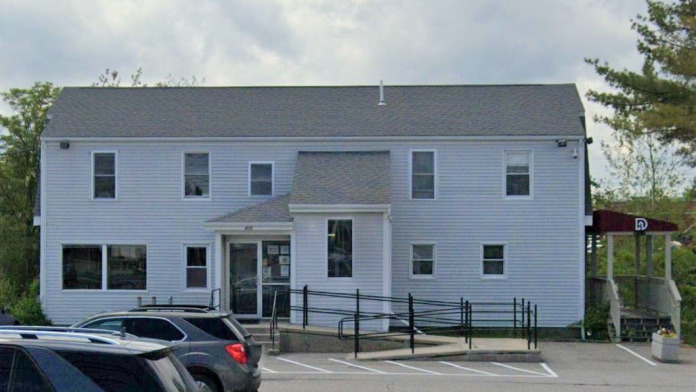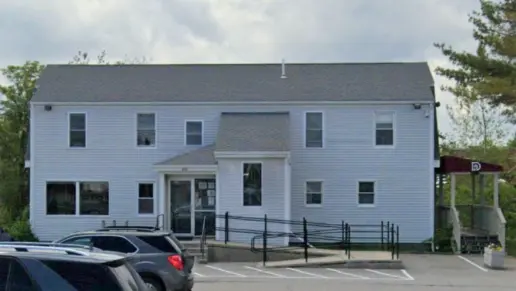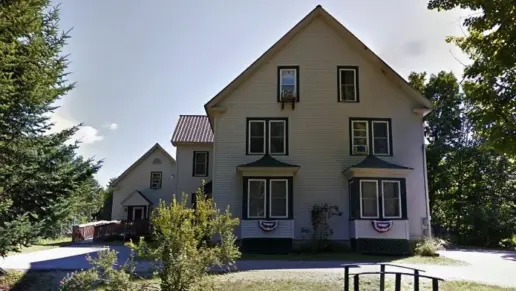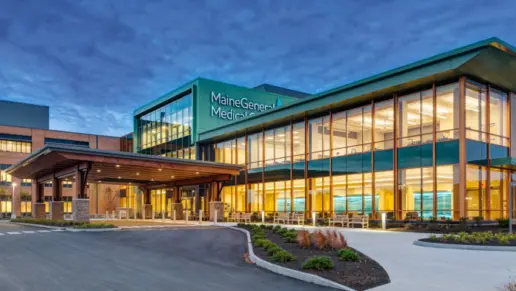Personally, I think there are better places to spend a fortune
About The South Portland Comprehensive Treatment Center
Located in South Portland, Maine, The South Portland Comprehensive Treatment Center, formerly called the Discovery House, provides crucial, lifesaving medication assisted treatment (MAT) and outpatient care to adults who are struggling with opioid use disorder. Clients who are in severe need will be happy to know that the clinic usually accepts same-day admissions. The facility also accepts most forms of insurance. Clients who plan on utilizing insurance as payment will verify and confirm their benefits prior to receiving treatment. For patients who do not have insurance or aren’t covered under their policy, the facility accepts cash, checks, credit cards, cashier’s checks and money orders.
This facility is specifically equipped to handle adult patients over the age of 18 who are addicted to substances like oxycodone, heroin, percocet, or other opiate substances. These types of addictions are difficult to recover from alone, which is why this treatment facility utilizes methadone to help improve recovery efforts.
Methadone is a medication that interacts with the brain and satisfies drug cravings. With the center’s MAT treatment, clients can expect to also participate in consistent counseling and therapy to facilitate a longer recovery period. If clients are in a position to return home in the evenings, then the facility does have take home medication doses available.
One notable aspect of this facility is that feedback from clients who have participated in their recovery programs is very positive. Past clients tend to point out the treatment centers’ empathetic staff, attentive care, and knowledgeable doctors as some of the best parts about their experience here.
Rehab Score
Gallery

Location
Other Forms of Payment
Private insurance refers to any kind of healthcare coverage that isn't from the state or federal government. This includes individual and family plans offered by an employer or purchased from the Insurance Marketplace. Every plan will have different requirements and out of pocket costs so be sure to get the full details before you start treatment.
Self-pay involves paying for treatment out of your own pocket. You can use savings or credit, get a personal loan, or receive help from family and friends to fund your treatment. If you don't have insurance or your insurance plan doesn't cover a specific program, self-pay can help ensure you still get the care you need.
Financial aid can take many forms. Centers may have grants or scholarships available to clients who meet eligibility requirements. Programs that receive SAMHSA grants may have financial aid available for those who need treatment as well. Grants and scholarships can help you pai for treatment without having to repay.
Medicare is a federal program that provides health insurance for those 65 and older. It also serves people under 65 with chronic and disabling health challenges. To use Medicare for addiction treatment you need to find a program that accepts Medicare and is in network with your plan. Out of pocket costs and preauthorization requirements vary, so always check with your provider.
Military members, veterans, and eligible dependents have access to specific insurance programs that help them get the care they need. TRICARE and VA insurance can help you access low cost or no cost addiction and mental health treatment. Programs that accept military insurance often have targeted treatment focused on the unique challenges military members, veterans, and their families face.
Medicaid is a state based program that helps lower-income individuals and families pay for healthcare. Medicaid covers addiction treatment so those enrolled can use their coverage to pay for rehab. When a program accepts Medicaid the client often pays very little or nothing out of their own pocket.
Addiction Treatments
Levels of Care
Treatments
The goal of treatment for alcoholism is abstinence. Those with poor social support, poor motivation, or psychiatric disorders tend to relapse within a few years of treatment. For these people, success is measured by longer periods of abstinence, reduced use of alcohol, better health, and improved social functioning. Recovery and Maintenance are usually based on 12 step programs and AA meetings.
Drug rehab in Maine is the process of helping someone learn how to live without the use of substances. Professional staff provide treatment to address the various issues of addiction. Methods often involve medication, counseling, and evidence-based therapies.
Opioid rehabs specialize in supporting those recovering from opioid addiction. They treat those suffering from addiction to illegal opioids like heroin, as well as prescription drugs like oxycodone. These centers typically combine both physical as well as mental and emotional support to help stop addiction. Physical support often includes medical detox and subsequent medical support (including medication), and mental support includes in-depth therapy to address the underlying causes of addiction.
Substance rehabs focus on helping individuals recover from substance abuse, including alcohol and drug addiction (both illegal and prescription drugs). They often include the opportunity to engage in both individual as well as group therapy.
Programs


Clinical Services
Cognitive behavioral therapy in Maine is a form of talk therapy. It involves a limited number of sessions during which the therapist helps the client become aware of negative thinking and replace it with positive thought patterns. This in turn helps the individual respond to challenges in healthier ways.
Group therapy is any therapeutic work that happens in a group (not one-on-one). There are a number of different group therapy modalities, including support groups, experiential therapy, psycho-education, and more. Group therapy involves treatment as well as processing interaction between group members.
Individual therapy offers personalized sessions for drug and alcohol addiction treatment to help uncover and address the root causes of addictive behavior. Your therapist will provide individualized, one on one support to help you build resilience and develop healthier habits with a focus on long term sobriety.
The goal of motivational interviewing in Maine is twofold. First is to increase your motivation to change. Second is to help you make a commitment to change. The process involves allowing you to express your views and concerns out loud. The therapist will listen affirm and encourage you to make the changes you desire in your life.
The goal of trauma therapy is to help you process and heal from experiencing or witnessing traumatic events. Your therapist helps you to integrate the experience coherently and then explores the emotions and situations that trigger your responses. This helps you heal and reduces your symptoms.
Couples in Maine may seek couples therapy to develop skills that will strengthen their relationship. As they learn how to manage challenges and conflict, these skills help with current and future issues.
The therapist engaged in family therapy work with all family members to understand the impact addiction has had on the family unit and individual members. They help develop collective strategies for recovery and facilitate open discussions to help families build resilience and improve interactions. This helps to support their loved one's path to recovery.
Accreditations

The Substance Abuse and Mental Health Services Administration (SAMHSA) is a branch of the U.S. Department of Health and Human Services. Established in 1992 by congress, SAMHSA's mission is to reduce the impact of substance abuse and mental illness on American's communities.
SAMHSA Listed: Yes

The Commission on Accreditation of Rehabilitation Facilities (CARF) is a non-profit organization that specifically accredits rehab organizations. Founded in 1966, CARF's, mission is to help service providers like rehab facilities maintain high standards of care.
CARF Accreditation: Yes

The National Association of Addiction Treatment Providers (NAATP) is a professional association that represents organizations in the field of addiction services. Founded in 1978, NAATP's mission is to advance addiction services and ensure that high-quality addiction treatment is available and accessible.
NAATP Member: Yes
Contact Information
400 Western Avenue
South Portland, ME 04106


